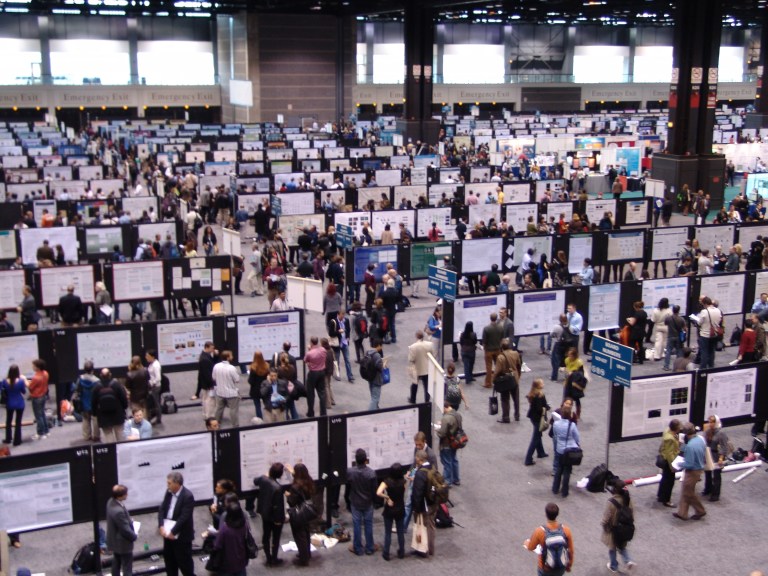October 2019

Here are a few tips that I consciously try and implement to maximize what I get out of conferences:
- Bring professional quality business cards. In addition to being practical, this immediately makes you seem thoughtful and professional- two qualities that look great to professors, other graduate students, potential collaborators, and potential future employers! And it’s worth the few extra dollars to get them printed professionally on high quality stock.
- Reconnect with old friends and don’t be afraid to make new ones. If you’re shy or just don’t know anyone, don’t worry- you’re not alone! Many people will be at their first conference, or just otherwise may not know a lot of people. If nothing else, then seek out the person standing by themselves and strike up a genuine conversation. If you’re an extrovert like myself, this might be easy. If you’re more of an introvert, just take it slow- focus on striking up a conversation with one person at a time. Set small, achievable communication goals. One trick that I like to use is to try and have lunch and/or dinner with somebody different every day. This helps ensure that I don’t end up spending all my time at the conference with the same group of people.
- Before you go, build a prioritized list of particular people you’d like to connect with. If some of these are famous or otherwise highly accomplished academics/scientists, then make sure a read a couple of their main papers and be familiar with the basis of their work before approaching them. By coming to the conference with a strategic and directed approach to “networking”, you’ll end up being that much more effective and successful. Conferences are one of the best ways to connect with top minds in your field. And don’t forget about happy hour when people tend to be more relaxed and open. It’s a great opportunity to mingle and I’ve even made connections with people while simply standing in the beer/wine line and randomly striking up conversation.
- Follow up! The art of the follow-up is an easy and impactful way to build professional relationships. Send an email a couple days after the conference ends to follow up with someone that you chatted with. Not only is this a great opportunity to say thank you for any input or guidance they gave, but it’s a memorable touch and a great way to make a lasting impression.
- I’ll end with a very common piece of advice, but it’s quite valuable. Make sure to go to as many sessions and talks as you can. Maximize your time at the poster sessions (if applicable) as well, this is a great opportunity to work the room when people are actively seeking to engage 1-on-1. Talk to anyone whose work seems interesting!
To sum it up, conferences are not only a great way to present your own work and stay apprised of current research in your field but also a great way to forge friendships, connections, and potential future collaborations. Make the most of them!
---Michael McCloy
Michael McCloy is a Ph.D. student in the Department of Wildlife & Fisheries Sciences